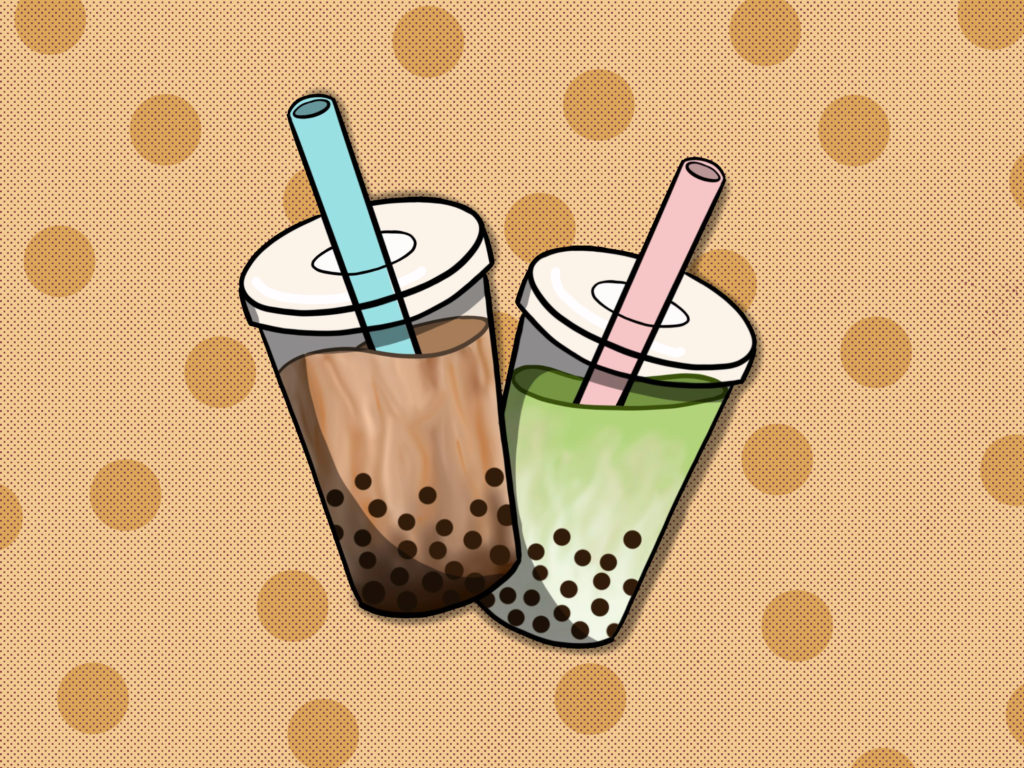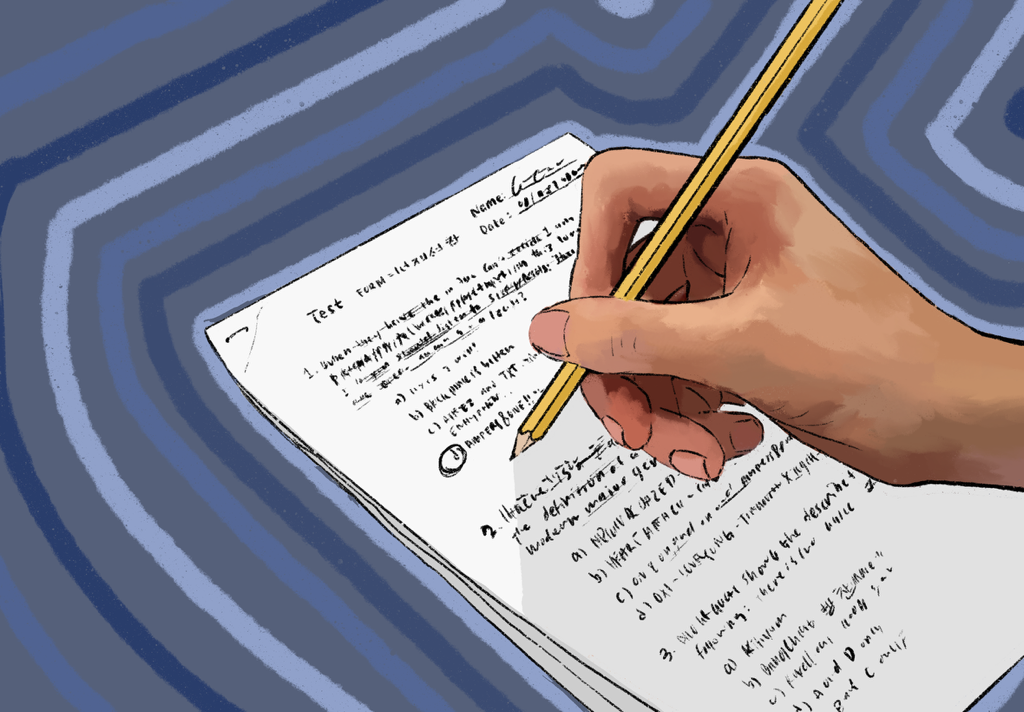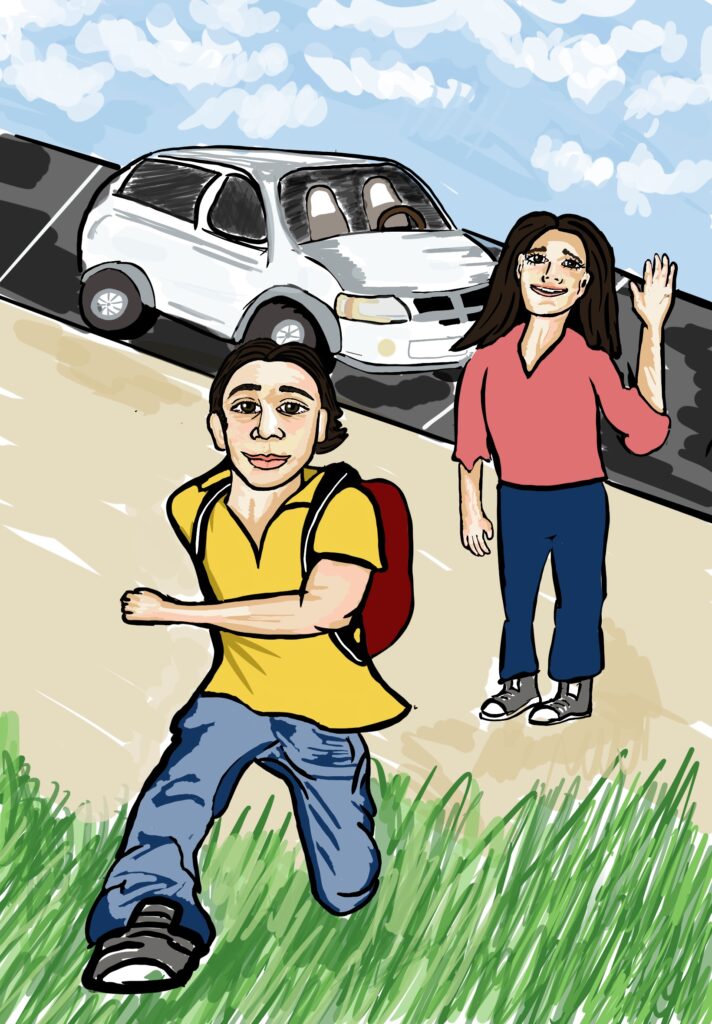
Graphic by Carolyn Chen/The Choate News
I was in third grade when I discovered the magic of boba. Known as zhen zhu nai cha (珍珠奶茶) in Chinese — literally, “pearl milk tea” — this nouveau drink has captivated me ever since my first sip. The silky, syrupy milk, refreshed by a touch of tea, has been impossible to resist — not to mention the iconic tapioca pearls at the bottom of the drink that add a sweet chewiness.
I remember how eight-year-old me, after being picked up from tennis on Sundays, would beg my parents to stop by the boba shop Yi Dian Dian (1點點) outside of our apartment. When you are eight and exhausted, a concoction of sugar, dairy, and starch is the key to happiness. The Shanghainese population indubitably agreed with me, judging by the chains of boba shops and long lines that quickly popped up around the city. The boba fever was an inevitable one: how could you resist the unmistakable blend of the rich flavors, the kick of dopamine as the liquid flows through your system, and the thousands of serendipitous combinations of flavors and toppings?
I never realized how prevalent boba was in my pre-teen years until I moved to the U.S. in seventh grade. Studying at a junior boarding school in Connecticut, isolated from the outside world, I missed the comfort of my favorite beverage. In a district so white and tiny that the nearest Asian restaurant was one town over, the prospect of boba, along with other delicacies from home, exited my life. I suppressed my cravings as a demonstration of “maturity” and “adaptability,” qualities my parents were proud of as they trusted me to thrive alone in a foreign place. Boba thus became a luxury I could only dream of, a special treat I could indulge in every summer, one that I could not take for granted.
When I discovered the Loose Leaf Boba Company in Wallingford, I was pleasantly surprised. I remember the first time I ordered Hong Kong Milk Tea with Honey Boba and Lychee Jelly — I had to translate each item on the English menu to Chinese in my head because I had never thought of boba outside the context of my home. Despite being a little nervous about how the drink would taste, the first sip immediately brought back memories from home. It wasn’t exactly the same as I remembered, but the sweet medley still pleased my palate as it always has. Ever since then, boba delivery is a frequent enjoyment among me and my Chinese friends at Choate. We order boba on the weekends, after a long school day, or whenever we’re in need of the warm embrace that only this drink could offer.
Boba is a great remedy, especially when school has stressed out me and my friends. One instance, my friend noticed I was struggling and decided to order me a boba. I immediately lit up when they walked into my room with my favorite combo: a Strawberry Matcha Latte with Honey Boba and Cheese Foam. The sweet sips send messages of affection, sustaining me through even the most rigorous study sessions. Only when we are far from home does boba assume a value beyond its delicious taste. Sometimes my friends and I even use it as a currency. “I owe you a boba for waking me up for class,” I’ve said more than once to a friend. In a world where belonging can be hard, boba is how we build our own little society. It is a way to heal — a symbol of love.
In a recent New Yorker article titled “Chronicles of a Bubble-Tea Addict,” the writer Jiayang Fan described the concept of being a “boba liberal.” The term, coined by Twitter user @diaspora_is_red, is “someone who centers her Asian identity in buzzy cultural objects and ‘trend-chasing spectacle’ but lacks true engagement with the politics of her Asian identity.” I found myself feeling guilty reading this because, in some ways, I have engaged in the process of flattening Asian culture into a singular commodity. I’ve come to understand that, by indulging in this Americanized trend, I am exercising my commercialist privilege and perpetuating the stereotypes that belittle a rich culture. These days, when I look into the dark boba pearls, I see how much I’ve grown through experiencing the world. Boba is still as enjoyable as ever, but it now carries more weight than the paper cup I held in third grade.




